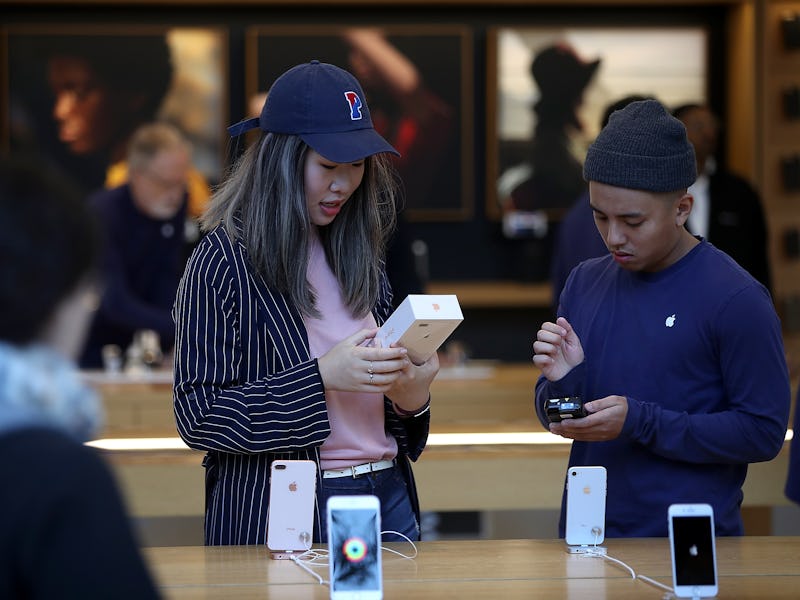2014 iPhone Study Fuels Theory That iPhones Slow Down on Purpose
We'll probably never really know for sure.

While you may not have found yourself on line outside the Apple Store to get the iPhone 8 on Friday, there is some research that suggests the company may be taking subtle steps to get you there.
Making the rounds again again is research conducted by Harvard University Ph.D. student Laura Trucco in 2014. It was then that she aimed to explore the suspicions countless iPhone users have held over the years: planned obsolescence, or Apple deliberately slowing old models timed to the release of new ones by way of operating system updates in order to sell their new product.
Trucco’s research centers around Google search queries for "iPhone slow" worldwide, and comparing that data to searches for “Samsung Galaxy slow.”
What she found in the iPhone data was six very-specific spikes that lent some validation to the Apple conspiracy theorists. Timed nearly to the day new iPhone models were released, spikes of “iPhone slow” could be seen time after time for each model from the iPhone 3G to 5C AND 5S.
That same trend could be seen yet again in Google Trends searches on Friday to some degree, but to a far lesser extent than has been recorded in the past.
Still, plenty of Twitter users appear to remain convinced.
Of course, this data really only has the potential to show what iPhone users might be perceiving rather than what exactly is happening with their devices. With this theory having gained so much ground over the years, one has to figure it’s possible that even the perception of one’s phone slowing could be attributed to a kind of placebo effect coming from the rumored phenomenon. That might even explain why searches for “iPhone slow” were relatively more frequent when the iPhone 5C and 5S came out than when the 5 did, or the 4S before that. But still, it’s at least a little suspect that this trend could not be perceived in searches concerning the Samsung Galaxy slowing.
Even beyond that, the methodology is, of course, nothing near an exact science.
Another explanation that has been offered that posits this: Even if iPhones really are slowing down as new operating systems are released, that doesn’t mean Apple is actually doing anything nefarious — it’s just a matter of improved hardware capable of running new OS’ at a faster speed.
While we may never really know the truth, it’ll be interesting to see what happens when the much-hyped iPhone X comes out next month.